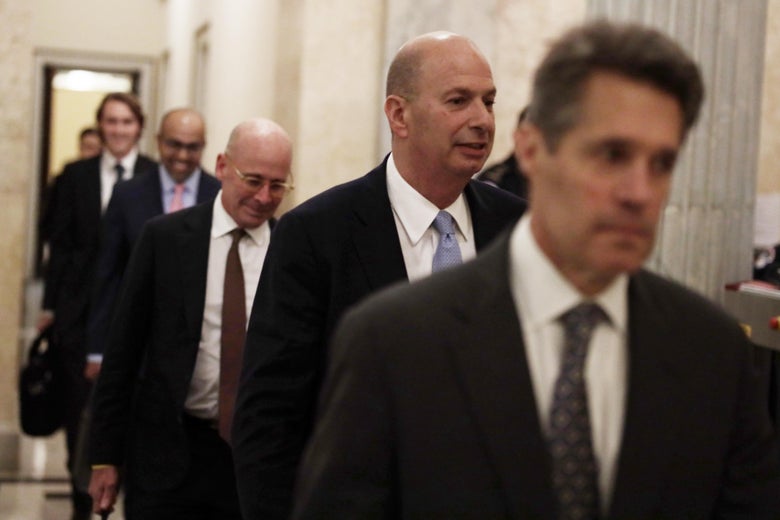
U.S. Ambassador to the European Union Gordon Sondland leaves after a closed session before the House Intelligence, Foreign Affairs and Oversight committees October 17, 2019 at the Capitol in Washington, D.C.
Alex Wong/Getty Images
U.S. Ambassador to the European Union Gordon Sondland told House committees last week that the way in which President Donald Trump and his allies pressured Ukraine to open political investigations in exchange for a White House meeting amounted to a quid pro quo. Sondland’s lawyer told the Wall Street Journal that the top diplomat specifically said that Ukraine agreeing to open up an investigation into 2016 election interference and a probe into a gas company where former vice presient Joe Biden once served on the board was a condition for a White House meeting between Trump and his Ukrainian counterpart, Volodymyr Zelensky. A lawmaker asked Sondland specifically whether that amounted to a quid pro quo. The diplomat specified that he wasn’t a lawyer but he believed the answer to that question was yes.
The testimony is key because Trump has long denied there was a quid pro quo and that has become a central point in the impeachment inquiry. And Sondland isn’t the first to directly say Trump and his allies were involved in some sort of quid pro quo. Bill Taylor, the top U.S. diplomat in Ukraine, said there was a direct link between the approval of military aid to investigating Biden and alleged Ukrainian interference in the 2016 election. Taylor didn’t use the words “quid pro quo” but that was pretty much what he implied when he said aid was “conditioned” on the investigations moving forward.
Sondland testified he had no knowledge of a connection between military aid and the investigations. But some lawmakers have called on Sondland to return for more questioning with some even suggesting he may face perjury charges. Since then there have been hints that Sondland was eager to distance himself from the president and his lawyer’s revelations to the Wall Street Journal seem to do just that.
Readers like you make our work possible. Help us continue to provide the reporting, commentary and criticism you won’t find anywhere else.
Join Slate Plusfrom Slate Magazine https://ift.tt/2JFfIyr
via IFTTT
沒有留言:
張貼留言